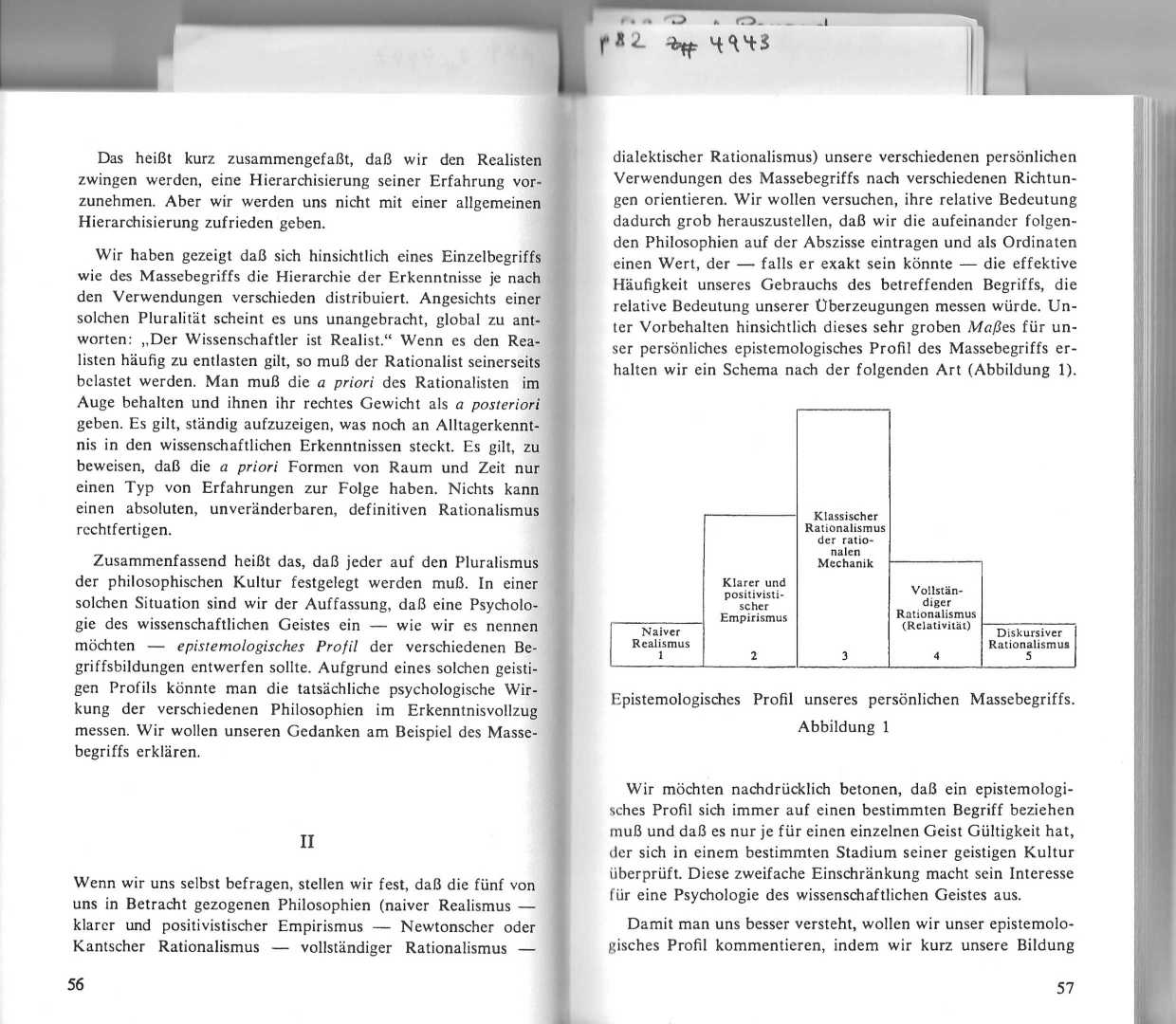[…] we will force the realist to make a hierarchization of his Experience. But we will not be satisfied with a general hierarchization.
We have shown that with respect to a single concept like the concept of mass, the hierarchy of knowledge distributes itself differently according to the uses. In the face of such plurality, it seems to us inappropriate to answer globally, "The scientist is a realist." If the realist must often be unburdened, the rationalist must in turn be burdened. One must keep in mind the a priori of the rationalist and give them their proper weight as a posteriori. It is necessary to constantly show what everyday knowledge is still contained in scientific knowledge. It is necessary to prove that the a priori forms of space and time result in only one type of experience. Nothing can justify an absolute, unchangeable, definitive rationalism.
In summary, this means that everyone must be committed to the pluralism of philosophical culture. In such a situation, we believe that a psychology of the scientific mind should sketch what we would like to call an epistemological profile of the various conceptualizations.
On the basis of such a mental profile, one could measure the actual psychological effect of the various philosophies in the process of cognition. We want to explain our thought by the example of the concept of mass.

Figure 1. Epistemological profile of our personal concept of mass
If we survey ourselves, we find that the five philosophies we have considered (naive realism – clear and positivist empiricism – Newtonian or Ramian rationalism – complete rationalism – dialectical rationalism) orient our various personal uses of the concept of mass in different directions. Let us try to bring out their relative importance roughly by entering the successive philosophies on the abscissa, and as ordinates a value which, if it could be exact, would measure the effective frequency of our use of the term in question, the relative importance of our beliefs. With reservations regarding this very crude measure of our personal epistemological profile of the mass concept, we obtain a scheme of the following kind (Figure 1).
We would like to emphasize emphatically that an epistemological profile must always refer to a particular concept and that it is only ever valid for a single mind that is examining itself at a particular stage of its mental culture. This twofold limitation accounts for his interest in a psychology of the scientific mind.
[…]
~
BACHELARD, Gaston, 1980. Die Philosophie des Nein: Versuch einer Philosophie des neuen wissenschaftlichen Geistes. Frankfurt a.M: Suhrkamp. Suhrkamp-Taschenbuch Wissenschaft, 325. ISBN 978-3-518-27925-0.